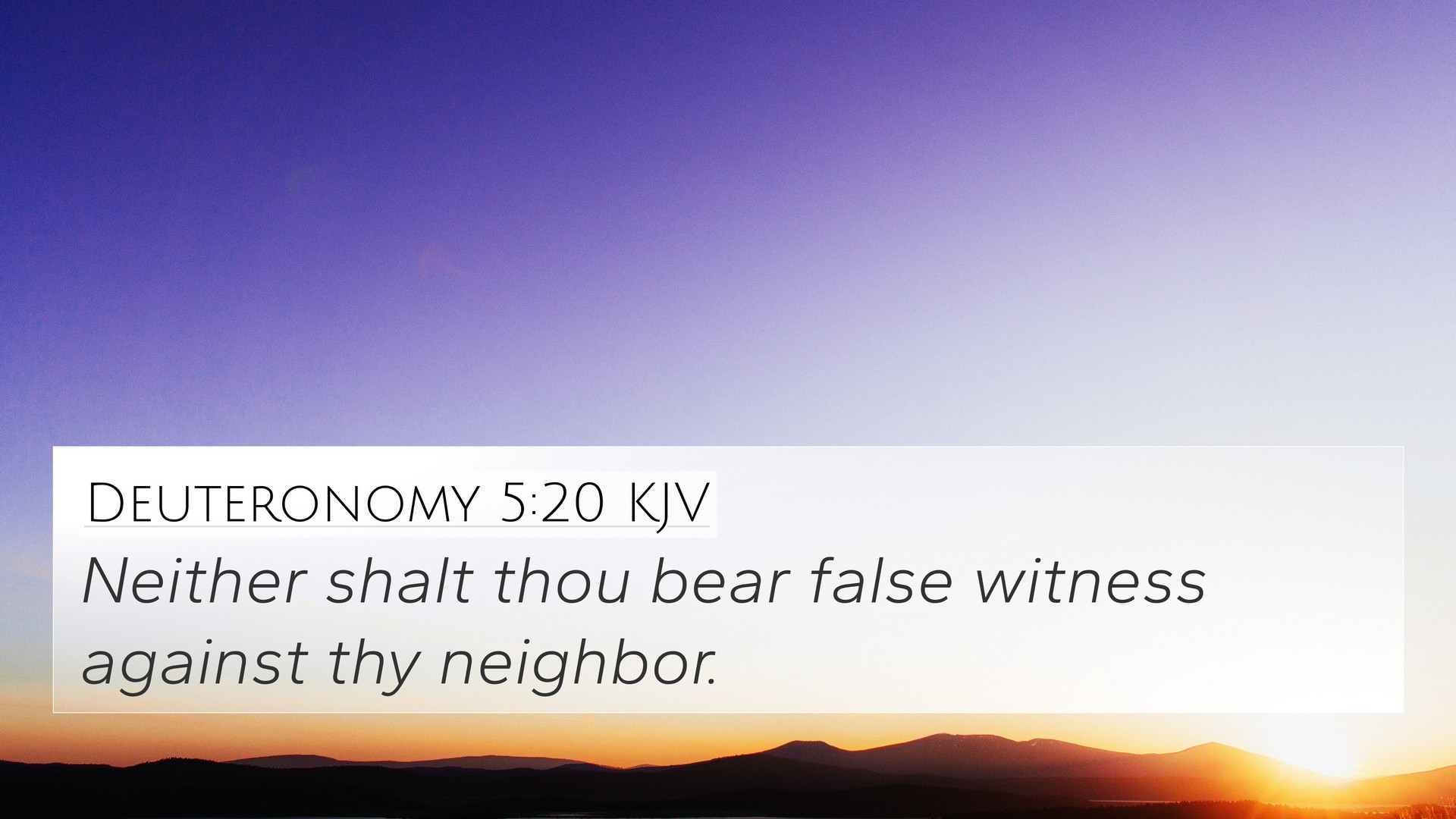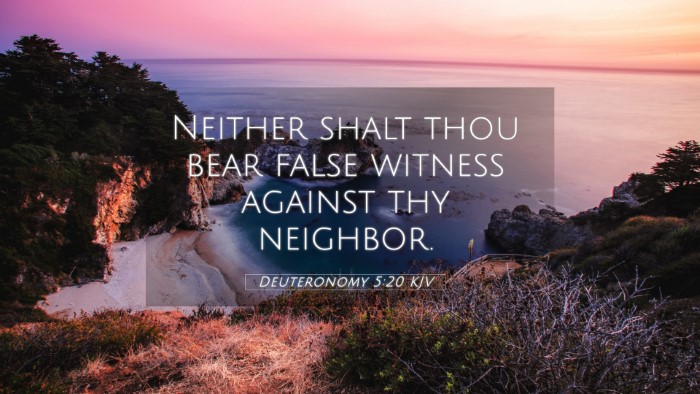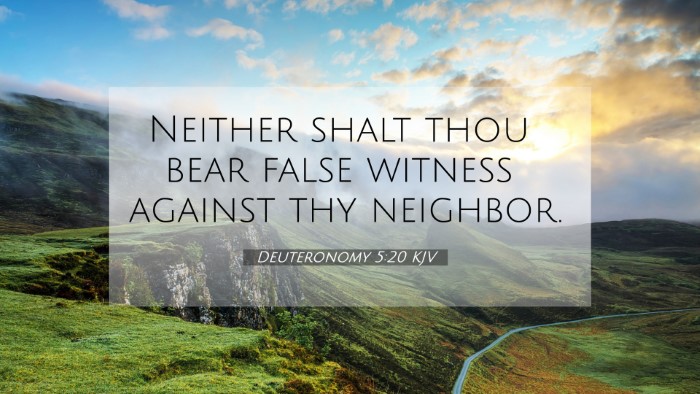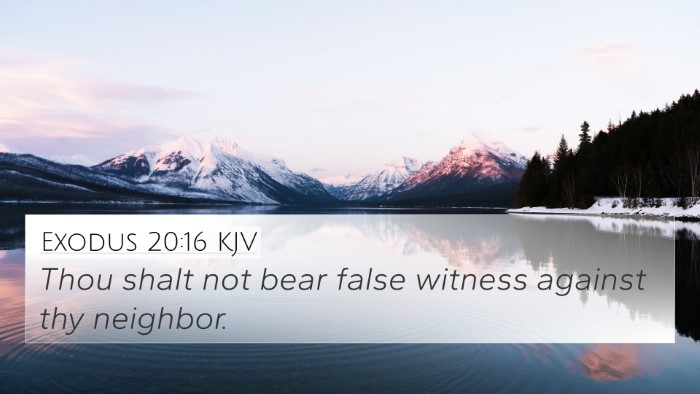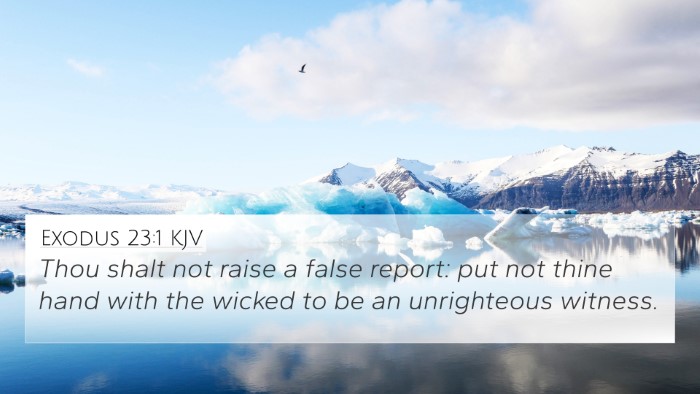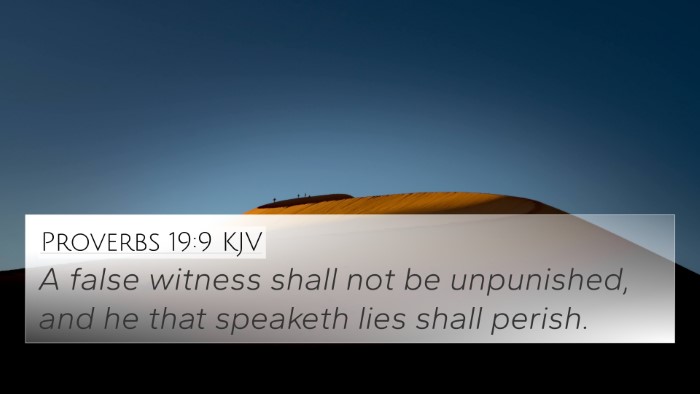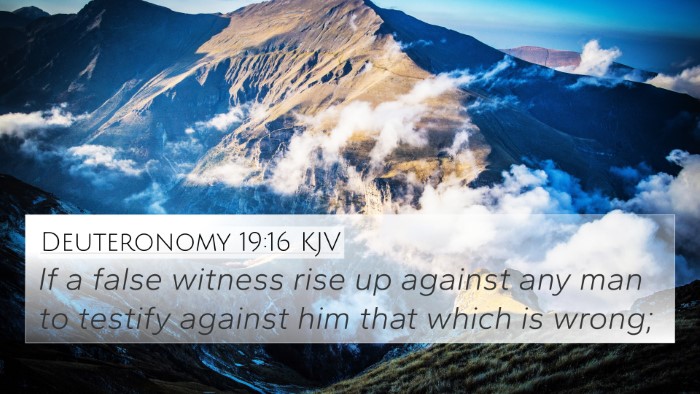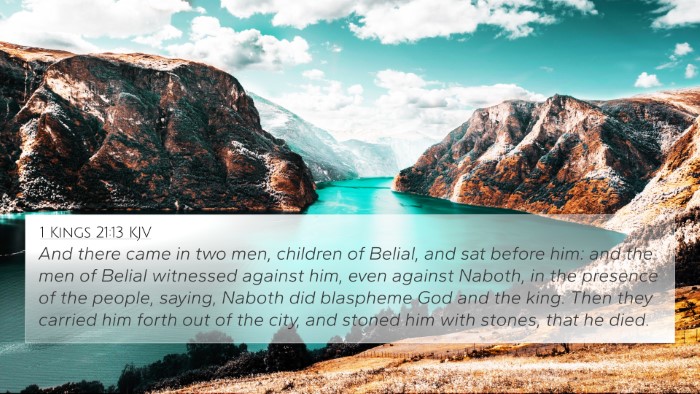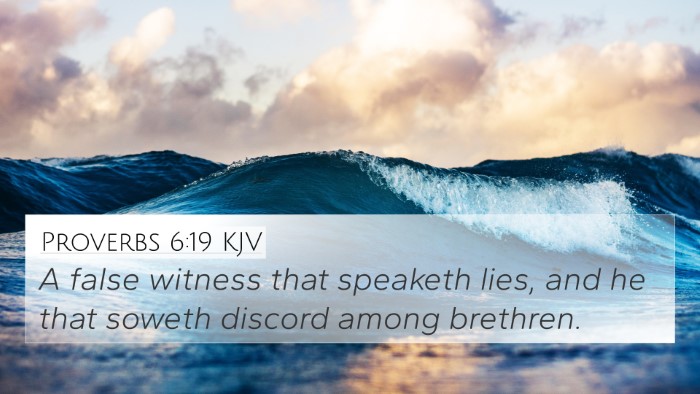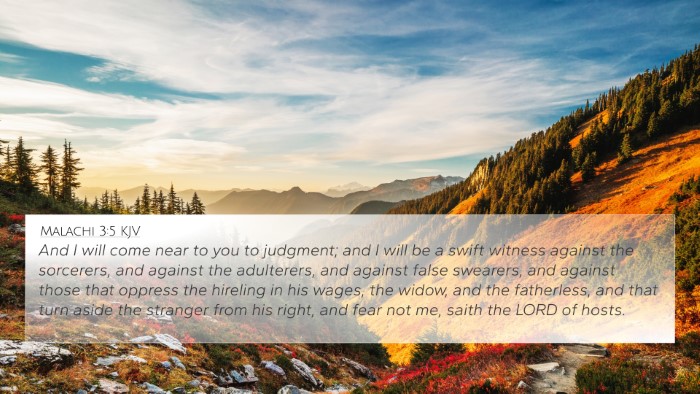Understanding Deuteronomy 5:20
Bible Verse: Deuteronomy 5:20 - "Neither shalt thou bear false witness against thy neighbor."
Meaning and Interpretation
The commandment found in Deuteronomy 5:20 focuses on the gravity of truthfulness and integrity in human relationships. It prohibits the act of bearing false witness, which is to lie or misrepresent the truth about others. This plays a critical role in maintaining justice and community harmony.
Combined Insights from Commentaries
This verse has attracted extensive commentary from biblical scholars over the years. Here are some insights gathered from renowned public domain commentaries:
-
Matthew Henry:
Henry emphasizes the ethical implications of this commandment, noting that it extends beyond mere legal testimony to encompass all forms of dishonesty against others. He posits that the essence of the law is to promote love and respect among community members, which false witness directly undermines.
-
Albert Barnes:
Barnes highlights the societal impact of truth-telling, asserting that false witness erodes trust within the community. He links this commandment to the need for justice and fair treatment, suggesting that legal systems must be grounded in honesty to prevent oppression.
-
Adam Clarke:
Clarke interprets this commandment within the broader context of social ethics, advocating for the necessity of accuracy in speech. He mentions that false witness can lead to severe moral and social consequences, emphasizing the importance of integrity in one’s declarations about others.
Theological Implications
From a theological standpoint, Deuteronomy 5:20 represents not just a social injunction but a divine mandate underscoring the importance of truthfulness as a reflection of God's nature:
-
Truthfulness as God’s Nature:
Since God is truth, upholding honesty in interpersonal relations is vital for reflecting His character.
-
Community and Divine Order:
This command teaches that God desires communities built on trust and righteousness, reinforcing the idea that moral laws guide societal structure.
Bible Verse Cross-References
This verse has correlations with various scriptures that focus on truthfulness and ethical conduct. Below are notable cross-references:
- Exodus 20:16: A direct mention of the same commandment under the Ten Commandments.
- Proverbs 19:9: "A false witness shall not be unpunished, and he that speaketh lies shall perish."
- Colossians 3:9: "Lie not one to another, seeing that ye have put off the old man with his deeds."
- John 8:44: Referring to Satan as the father of lies, which underscores the gravity of falsehood.
- Psalms 101:7: "He that worketh deceit shall not dwell within my house; he that telleth lies shall not tarry in my sight."
- Leviticus 19:11: "Ye shall not steal, neither deal falsely, neither lie one to another."
- 2 Timothy 3:3: "Without natural affection, trucebreakers, false accusers, incontinent, fierce, despisers of those that are good."
Connections Between Bible Verses
The command against bearing false witness connects to broader biblical themes, including honesty, integrity, and social justice. Understanding these connections is vital for a holistic grasp of biblical teachings.
Tools for Bible Cross-Referencing
In studying scriptures, utilizing tools can enhance understanding:
- Bible Concordance: Helps in locating verses that mention specific words like "truth" or "false witness."
- Bible Cross-Reference Guide: Assists in identifying related verses and themes.
- Bible Reference Resources: Provides access to a variety of biblical texts and commentaries for deeper analysis.
How to Use Bible Cross-References
Cross-referencing involves examining related verses and their contexts. Here’s how to approach it:
- Identify Key Themes: Determine the central message of the verse and find related based on thematic links.
- Compare Contexts: Understand how each verse fits within its narrative, aiding in deeper understanding.
- Apply Findings: Integrate insights from related scriptures into practical life applications and spiritual growth.
Conclusion
Deuteronomy 5:20 calls believers to uphold truth and integrity. The ongoing dialogue through cross-referencing encourages a deeper understanding of God’s call for honesty in our interactions with others. The moral and spiritual implications of this commandment encourage us to reflect God's truth in our lives.
